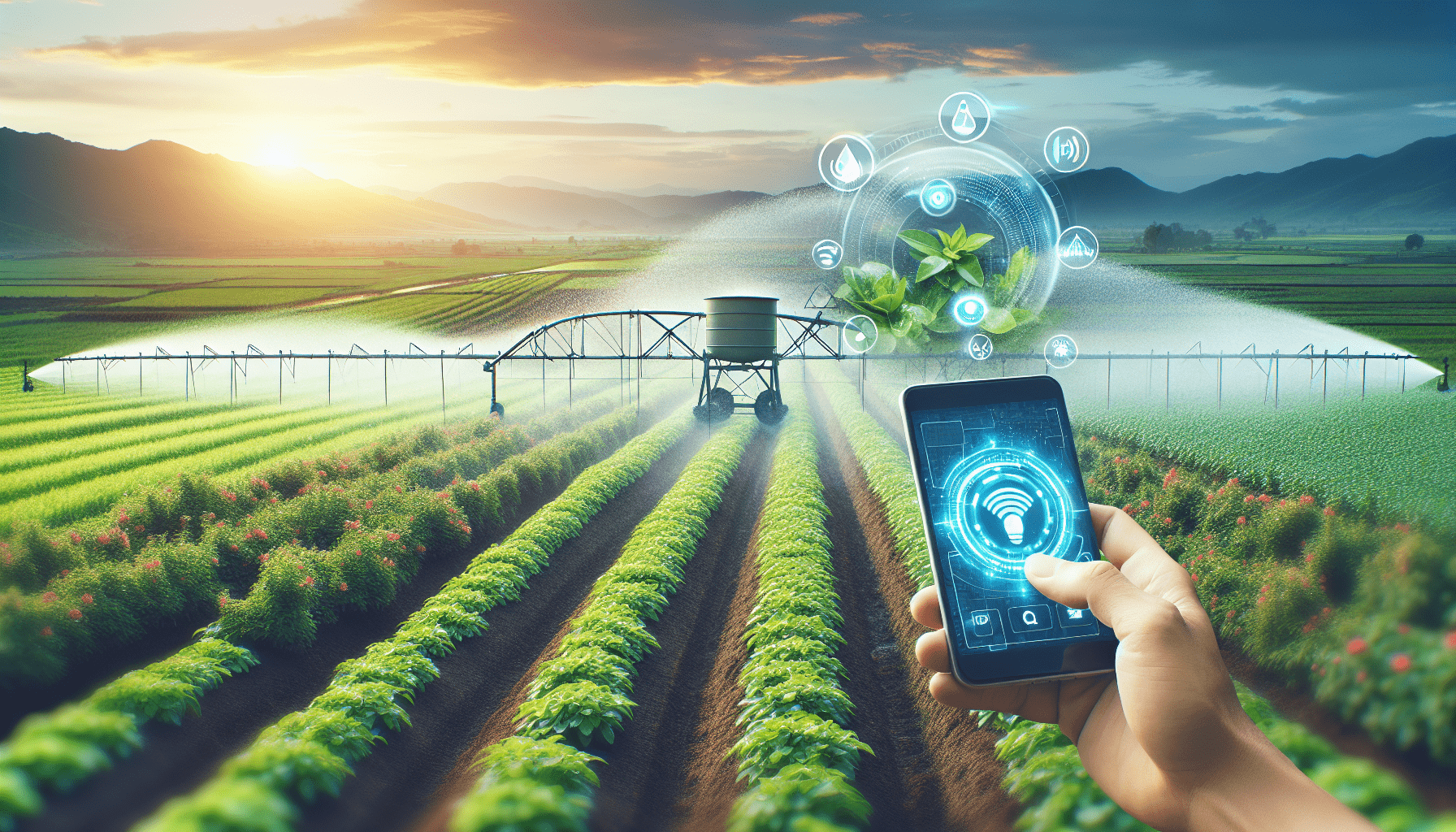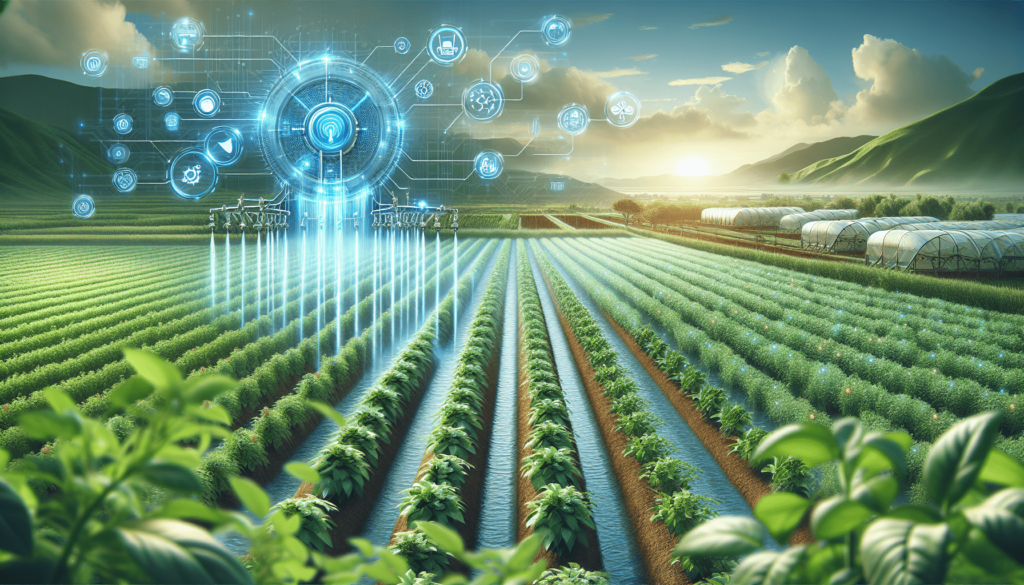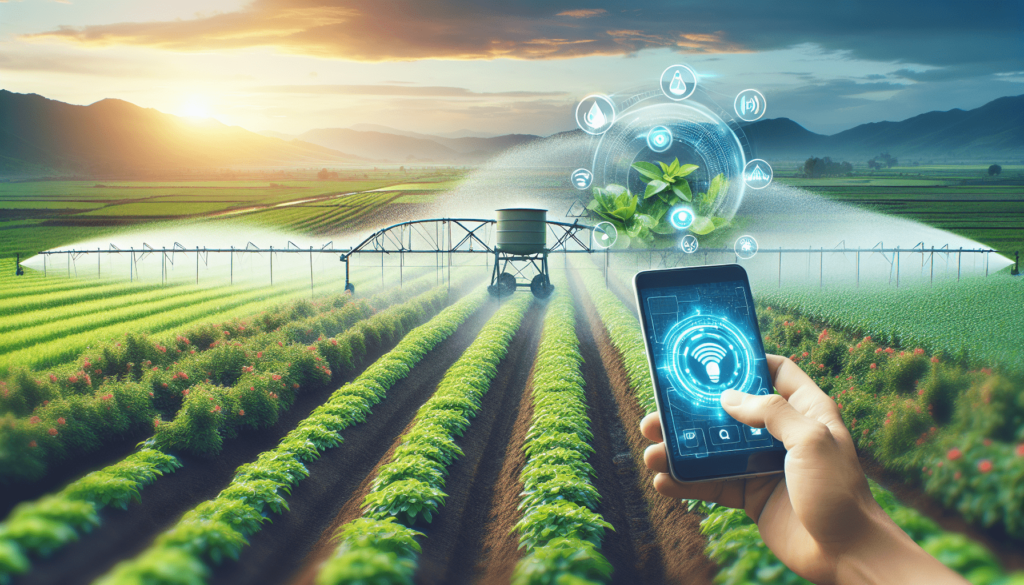
You’re at the point of contemplating whether to upgrade your traditional watering method to a smart irrigation system. It’s understandable that you might have questions. In the article “Smart Irrigation Systems: Are They Worth The Investment?”, we tackle this tech advancement head-on, discussing potential benefits and drawbacks. We’ll evaluate whether this savvy watering solution may be a worthwhile investment for you, depending on your unique needs and circumstances.

Understanding Smart Irrigation Systems
The future of farming hinges on harnessing the power of technology to maximize efficiency as well as nurture the environment. Enter smart irrigation systems, the rising star in agricultural technology.
Definition of smart irrigation systems
Generally speaking, a smart irrigation system is a revolutionary way to control the watering schedule of your landscapes digitally. It’s an automation used in agriculture to optimize water usage. Through the use of advanced technology and real-time data, these systems regulate the irrigation of land, ensuring maximum efficiency and water preservation.
How smart irrigation systems work
Imagine if your land could talk to you, telling you exactly where and when it needs watering. That’s essentially what a smart irrigation system does. These systems utilize real-time weather data, soil conditions, evaporation, plant water use, and other vital factors. From these data, the system can adapt its watering schedule and volume to the exact needs of your landscape. Indeed, instead of following a set, rigid timetable, a smart system optimizes watering schedules, delivering the right amount of water at the right time.
The components of smart irrigation systems
A smart irrigation system is usually composed of automatic controllers, sensors, and sprinkler heads. The role of sensors is to transmit real-time data about climatic and soil conditions. On the other hand, automatic controllers utilize this data to adjust the watering schedule, while sprinkler heads ensure the accurate dispatch of water across the landscape.
Variety of smart irrigation systems in the market
Numerous options are available in the market, each designed to meet different needs and budgets. Weather-based systems, for instance, adjust watering times based on the day’s weather conditions. On the other hand, soil moisture-based systems provide water only when the soil is dry. Then you have all-in-one smart irrigation systems that utilize a combination of the above strategies, factoring in numerous parameters to gauge the exact watering needs of your landscape.
Benefits of Smart Irrigation Systems
Now that you understand the workings of smart irrigation systems, let’s further unpack their potential benefits.
Improved crop yields
First and foremost, improved crop yield is the most notable benefit that smart irrigation systems bring to the table. These systems ensure that plants receive the optimal amount of water, which in turn promotes healthier growth and yield.
Efficient use of water
By using real-time data to optimize watering schedule, smart irrigation systems eliminate wastage, ensuring every drop of water is used efficiently. As a result, these systems dramatically reduce water usage compared to traditional irrigation methods.
Reduced labor costs
Automating the irrigation process eliminates the need for manual interference, which in turn reduces labor expense. Instead of spending time controlling irrigation, farmers can focus more on other vital agricultural activities.
Enhanced flexibility and control in irrigational activities
These systems bring a level of flexibility and control never before seen in agricultural irrigation. You can remotely monitor and modify the irrigation plan from anywhere, allowing you to have control over your landscape’s watering schedule.
Environmental sustainability
Smart irrigation systems contribute to environmental sustainability by minimizing the overuse of water, thus conserving this precious resource. Also, they reduce the runoff of water, which often carries fertilizers and chemicals into nearby waterways, reducing pollution.
Cost Considerations of Smart Irrigation Systems
While the benefits of these systems are compelling, it’s important to also consider the costs.
Buying and installation costs
The initial costs of smart irrigation systems could be a setback for some farmers. The price of the systems varies based on factors such as brand, type, and the area of land to be irrigated. Additional expenses may include installation services if you don’t install the system yourself.
Maintenance costs
Like any other systems, smart irrigation systems require regular maintenance to ensure their proper functionality. This could include costs for cleaning clogged sprinkler heads, replacing worn-out parts, or upgrading the software of the system, among others.
Replacement costs
Over time, parts of the system may need replacement due to wear and tear. These parts could be quite expensive, hence adding to your cost of operating the system.
On-going operational costs
Operating a smart irrigation system requires a constant power source which could increase your farm’s overall power consumption. Internet connectivity, a necessity for remote control of the system, could also present an additional operating cost.

Financial Savings & Returns
Despite the costs, you might find that smart irrigation systems are a smart investment in the long run.
Reduction in water bills
The efficient use of water by these systems can lead to significant savings on your water bills. While it might seem insignificant in the short run, the cumulative savings over years can be substantial.
Higher crop yields and income
Continued use of smart irrigation systems significantly improves crop health and yield. In turn, this improves the quality and quantity of the harvest, which can directly lead to increased income.
Decreased labor costs
With minimized human interference in irrigational activities, labor costs can potentially reduce. Plus, the redeployment of labor to other areas of farming can increase overall agricultural productivity.
Potential grants or subsidies for adopting water-saving technology
You may also be eligible for government grants or subsidies that aim to encourage farmers to adopt water-efficient technologies. Such financial incentives can offset some of the initial costs associated with purchasing and installing such systems.
Smart Irrigation Systems From The Environmental Perspective
Besides the economic aspects, it’s essential to also appreciate smart irrigation systems’ environmental impacts.
Impact on water conservation
Smart irrigation systems contribute significantly to water conservation. Their efficient use of water ensures minimal wastage, safeguarding this critical resource for future generations.
Support for sustainable farming
By reducing water consumption and minimizing runoff, smart irrigation systems support sustainable farming practices. This way, you can contribute to environmental preservation while maximizing your farming returns.
Reduction in runoff and sedimentation
Smart irrigation systems are known to reduce water runoff significantly. Their precise application of water minimizes the chances of water wastage through runoff, thus also contributing to reducing sedimentation in water bodies.
Case Studies Supporting the Worth of Smart Irrigation
Research and real-life case studies can further lay credence to the worth of smart irrigation systems.
Success stories from farmers who’ve installed smart systems
Many farmers who’ve integrated smart irrigation systems on their farms have reported increased water efficiency and enhanced crop yield. These firsthand testimonies serve to underscore the real-life benefits of these systems.
Hard data showcasing the economical and environmental impact
Several studies underscore the positive impact of smart irrigation systems. For instance, some findings indicate that these systems can conserve water by up to 50%, and increase crop yields by about 20-30%.
Lessons learned from these case studies
From these studies and stories, it is clear that smart irrigation systems can bring significant returns for farmers. However, effective implementation and correct usage play a critical role in realizing these benefits. Also, farmers need to consider the initial costs against the long-term returns.
Challenges and Concerns with Smart Irrigation Systems
Like any other technology, smart irrigation systems aren’t without their share of challenges and concerns.
Technical and mechanical failures
Systems could fail due to software or hardware glitches. Therefore, users need a certain level of technical know-how to troubleshoot simple issues or hire a service technician, which can be expensive.
Costs that may outpace savings
The initial cost of purchasing and installing these systems, as well as the ongoing costs of maintenance and repair, could outweigh the savings, especially for smaller farms or gardens.
Reliance on technology and electricity
These systems depend on technology and electricity to operate. In places where the power supply or internet connection is unreliable, the system could fail and adversely affect crop production.
Limitation of use in certain geographical locations and types of soil
Not all geographical locations and soil types are suitable for smart irrigation. For instance, heavy clay soils retain water far longer than sandy soils, which might not be adequately considered by the system.
Smart Irrigation Systems: Industry Trends
The smart irrigation industry is continuously evolving, powered by technological advancements and market demands.
Current and upcoming tech innovations in smart irrigation
New technological advancements such as Artificial Intelligence (AI) and Machine Learning (ML) are creating even smarter irrigation systems. These technologies can analyze complex datasets to enhance predictive water scheduling further.
Market trends and predictions
As awareness about water conservation increases, more farmers are expected to adopt smart irrigation systems. As such, forecasts suggest that the market for these systems will grow significantly in the coming years.
Impact of legislations on growth of the smart irrigation systems industry
Governments worldwide are increasingly legislating water conservation. Such regulations could have a positive impact on the growth of the smart irrigation industry, as more farmers turn to these systems as a water-saving solution.
Tips On Making the Most From Smart Irrigation Systems
To maximize the efficiency of your smart irrigation system, follow these tips.
Effective practices for maximum yields
Ensure that the system is correctly installed and calibrated according to manufacturer instructions. Establish watering schedules that consider your soil type, weather patterns, and the specific water needs of your crops.
Maintenance recommendations
Regularly clean and inspect your system to ensure that it’s in optimal working condition. Ensure no leaks or blockages present, which could affect the system’s effectiveness.
Training on usage and interpretation of data
Ensure that you and anyone else operating the system is appropriately trained. This includes understanding how to interpret the data provided by the system correctly and how to use this information to enhance efficiency.
Integrating smart irrigation with other green practices
For the best results, integrate your smart irrigation system with other technologies and best practices, which can include crop rotation, composting, and the use of organic fertilizers.
Making the Decision: Is The Investment Worth It?
Determining whether a smart irrigation system is a sound investment depends on individual circumstances and goals.
Personalizing the cost-benefit analysis
Every farm is unique. Consider your unique circumstances, including the size and type of your farm, the crops you grow, your local weather patterns, and the cost of water in your area. Based on these factors, conduct a cost-benefit analysis to determine if the investment is worthwhile.
Consideration of objectives, resources, and constraints
Consider your long-term goals as a farmer. If you aim to grow sustainably while enhancing productivity, a smart irrigation system can be a strategic addition to your farm equipment. However, also be conscious of the financial commitment and whether you have the necessary resources to maintain the system.
The short and long term view of investing in smart irrigation systems
While the upfront cost can be high, it’s worth considering the long-term savings and yields. A smart irrigation system can help lower water bills, reduce labor costs, and potentially increase crop yields over time.
And so, while some hurdles present, there’s no denying the immense potential and benefits that smart irrigation systems offer. The decision of whether they’re worth the investment ultimately rests on a multiplicity of factors, from your budget and operational costs to the practical realities of your locale to your long-term agricultural ambitions and visions for your land.
